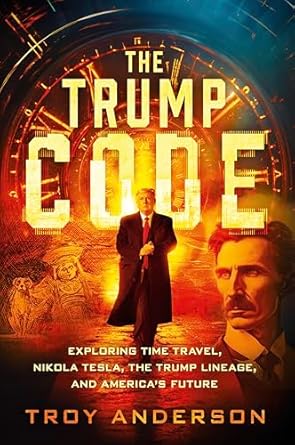A Civil Republic, if You Can Keep It
“PBS NewsHour” host Geoff Bennett interviewed Los Angeles Times culture columnist L.Z. Granderson and New York Times columnist David Brooks last week. Granderson (born 1972) is an American journalist and former actor who publicly announced as homosexual in 2012.
Granderson has a son from his previous marriage to a woman. In 2016, he married PetSmart’s vice president of planning, Steve Huesing. He epitomizes the shallowness of contemporary America, where every person “has their own truth.”
“NewsHour” host Bennett presented three topics for discussion: 1) Why the presidential race is deadlocked, 2) Harris’ strategy of calling Trump a “fascist” and 3) newspaper presidential endorsements. Rather than staying on topic in his segment, Granderson opted for bombasting the Electoral College:
Sometimes, we conflate the conversation about the results with the Electoral College and the popular vote. We know that when it comes to the popular vote, Democrats have won pretty easily over the last 15 to 20 years. And in [the] case of both President Biden [and] Secretary Clinton, even though Secretary Clinton lost, she won by millions of votes. And so, on the one hand, based on the fact that she’s a Democrat, you can expect the vice president to defeat Donald Trump by millions of votes.
And that’s the reason why it’s close. [We] need to look at the history of the Electoral College and what it’s designed to do. I don’t think the fact that it’s a close election from the Electoral College in 2024 really reflects where the nation is. Most people have voted Democrat over the last 20 years.

Order your copy of Troy Anderson’s “The Trump Code” at Amazon.com today!
Granderson, unfortunately, seemed to have entirely missed Civics 101 at Western Michigan University. The American Founding Fathers established a republic from the ground up, not a pure-majority democracy. An elementary understanding of the founding era would inform Granderson why the founders rejected the pure democracy model. They established a democratic republic as a form of government.
Their reasoning was rooted in concerns about mob rule, stability and the protection of individual rights, which they believed could be undermined in a system that solely relied on the majority’s will. American founder Benjamin Franklin (1706-1790) heightened the concern by describing democracy as “two wolves and a sheep voting on what’s for dinner.”
Breaking News. Spirit-Filled Stories. Subscribe to Charisma on YouTube now!
The Electoral College—a political concept masterminded by the American founders—was established to elect the president. This system balances the overall popular vote with representation for smaller states, ensuring that densely populated areas do not dominate the election process.
The design encourages both coalition building and national campaigning. To be elected president, for example, a candidate must have a multitude of voters and types from various parts of the country. Winning just the South or the East is not a winning formula. For instance, a presidential candidate cannot win the 270 electoral votes needed with only Massachusetts, California, and New York in the win column.
If winning the national election were based solely on garnering the most votes, a presidential candidate would, for the most part, simply campaign in America’s largest population centers. But then the interests and wishes of Montanans, West Virginians, Vermonters, Mainers and Wyomingites would be vastly diminished.
The Electoral College is a system designed in which no presidential candidate can long ignore a state and its citizens without discovering that each vote in every state is crucial to victory.
Second, the Founding Fathers emphasized civic responsibility and the importance of an educated citizenry for sustaining democracy. They believed citizens must engage in public affairs, vote and participate in governance to maintain freedom.
Seventeenth- and 18th-century Americans were among the most educated people in the world, mainly due to the Puritans who settled in New England. With their strong work ethic and emphasis on biblically based education, early America’s education model concentrated on excellence of character, attaining spiritual wisdom and students’ conduct conforming to the biblical standards of right and wrong. The Bible was the principal component of early American education.
Proverbs 1:7a (NIV) informs us that “The fear of the Lord is the beginning (Heb. The first in place, time, order, rank) of knowledge.” Another way to say this is: The fear of the Lord is the principal part of knowledge.” Solomon asks in Proverbs 17:16, “Why should fools have money in hand to buy wisdom, when they are not able to understand it?”
Jewish Hebrew scholar Michael V. Fox notes in his Proverbs commentary that wisdom cannot be bought—not because it is so expensive, but because no valuables can be compared to it. “Wisdom belongs to a different category of value and hence cannot be acquired in [secularists’] fashion.”
Dr. Bruce K. Waltke, the foremost living authority on wisdom literature in the Old Testament, explains why the founders placed the Bible as the main component of early education: “What the alphabet is to reading, notes to reading music, and numerals to mathematics, the fear of the Lord is to attaining the revealed knowledge of (Scripture).” Fear of the Lord provides the theological and epistemological foundation for acquiring knowledge.
Elaborating on Proverbs 1:7, Fox argues that “The fear of God is the starting point of the educational process, not a substitute for it.” Scottish biblical scholar William McKane (1921-2004) adds, “Without this basic reverence for Yahweh and submission to him, there can be no acquisition of wisdom.”
This all adds up to a complete and utter indictment of present-day secular education models.
Friedrich Schiller (1759-1805), the German poet, playwright, historian and one of European history’s most significant literary figures, noted his disillusionment with the French Revolution by saying, “History brought forth a great moment, but the moment found a mediocre people.”
Initially pleased and hopeful that the Liberte, Egalite and Fraternite revolution would usher in an era of reason, liberty and overall well-being for the French, the anti-God movement quickly descended into violence and chaos. Schiller insightfully pointed to the revolution’s secular leadership, which lacked the moral and intellectual capacity to rise to the occasion.
Contemporary America finds itself in a similar predicament. Having squandered the Judeo-Christian heritage and Bible-based culture established by the American founders, today’s mediocre secular leadership lacks the moral and intellectual capacity to deal with the threat facing the nation because it is a spiritual problem.
Thankfully, Gideons and Rahabs have begun entering the public square, and a “cloud the size of a man’s hand” (1 Kings 18:44b, NLT) is forming.
Join Charisma Magazine Online to follow everything the Holy Spirit is doing around the world!
David Lane is the founder of the American Renewal Project.




























































